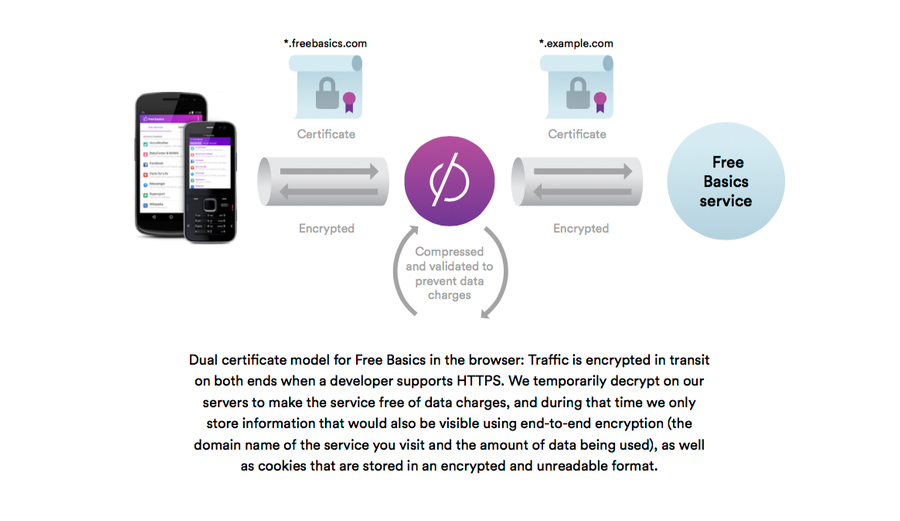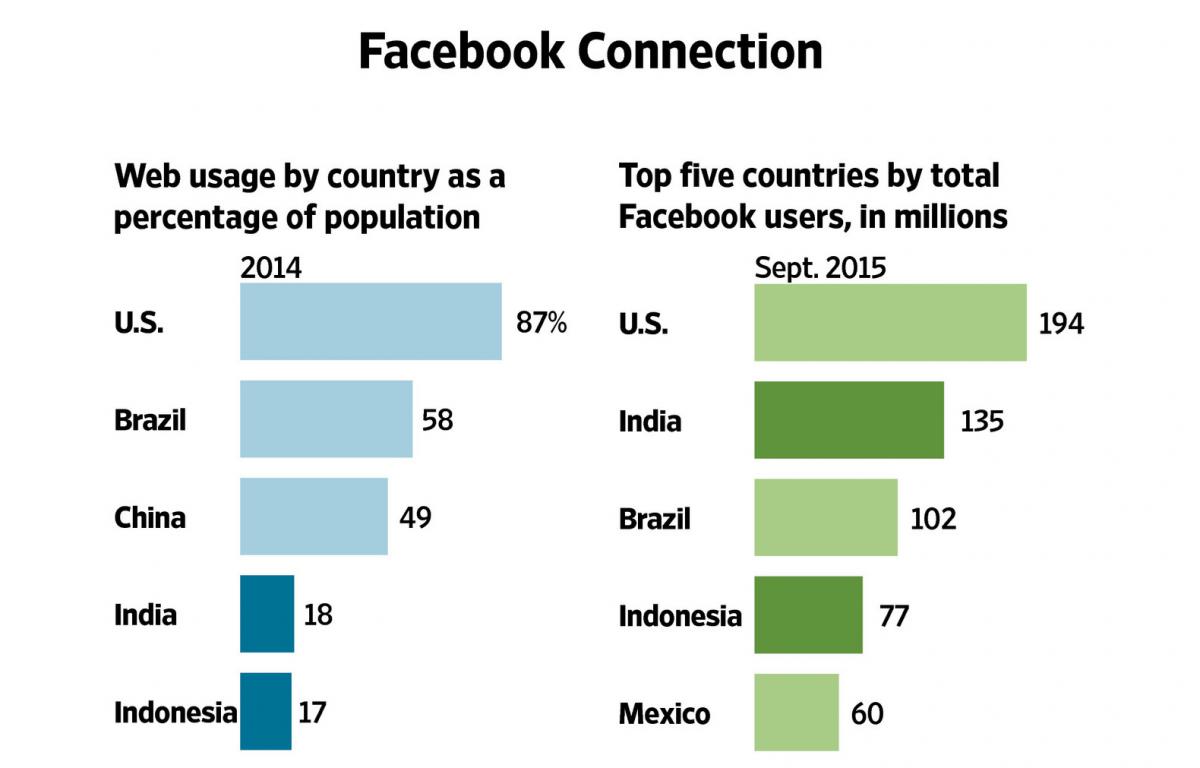 What's the meaning of a name? To most, it means everything, and the same goes to Facebook.
What's the meaning of a name? To most, it means everything, and the same goes to Facebook.
The social network giant is renaming its controversial Internet.org app and mobile website - the company's effort to connect the unconnected - to become Free Basics by Facebook.
Connecting the world to the internet is hard work, even for Facebook. The Facebook-led initiative's aim is to bring free internet access to four billion people around the globe who has yet to have it, and to increase internet access for those whose access is limited.
As of September 24th, 2015, Facebook's Internet.org, the Free Basics of Facebook, is already available in 18 countries. As for the renaming, Facebook intended to better distinguish the app and website from Internet.org, the larger initiative that created it in the first place, and the one that is incubating many technologies and business models to help get the web to new users faster.
Facebook is not just renaming it. The new name means Facebook is rebranding it by introducing something to appeal more to users.
Facebook uses Internet.org initiative to get more people to use the internet because at its scale, the reach of internet don't match the social media's ability in growth. As Facebook closes in to the global number of internet users, its growth will slow down significantly.
Internet.org steps in as Facebook's solution to get more users, while at the same time, benefiting those that are still unconnected by giving them free internet with a "bargain".
Better To Have Some Than Nothing At All

Free Basics is typically a proxy between users and the wider internet. This enables users to see bare-bones and low-bandwidth version of Facebook and other services. Since it's a service dedicated to places where people aren't connected to the internet, or has yet to have an adequate resources to provide stable and fast connection, Facebook is putting more focus in setting up the service to run well on networks that are more constrained. Because the devices are relatively older, the more modern security protocols, for example, aren't supported yet.
It did this by compressing traffic for better efficiency, and stripping out unnecessary data requests. This method eliminated the use of secure connections using HTTPS. But since proxy is needed to inspect and alter traffic as it passes through, it's impossible for Facebook to use end-to-end web encryption. Instead, it uses a two-part system in which encrypts the web traffic between users and Internet.org servers, then passing the traffic to hosts with whatever encryption the hosts have.
Free Basics, or the Internet.org, has faced a global backlash that began in India last April. Several Indian web publishers pulled out of the program, which lets some publishers offer pared-down versions of services to users free through a Facebook-built app.
People were worried that Facebook was conspiring with mobile carriers to determine which websites can be qualified for inclusion.
To them, this violated the principles of net neutrality in which internet providers should treat all online services and websites the same.
The criticisms continued when nearly 70 advocacy groups released a letter to Facebook founder Mark Zuckerberg, protesting that Internet.org was also stirring privacy concerns, beside than just violating net neutrality. They accused internet.org of creating a "two-tiered" internet "in which poor people will only be able to access a limited set of insecure websites and services.
Zuckerberg defended the program. In a blog post, he said that Internet.org didn't block or throttle services and therefore didn't conflict with net neutrality.
He also stated that it would cost Facebook too much to make the entire internet available to everyone. Facebook's approach here was to give an economical version of the internet to people who wouldn't have without it.
If people can't afford to pay for internet access, "it is always better to have some access and voice than none at all," Zuckerberg said. "It's not an equal internet if the majority of people can't participate."
"Net neutrality should not prevent access," he further said in a video.
Although Zuckerberg defended the purpose of the program, Facebook worked quickly to address any concerns about equal access, privacy and security, whenever they are available. The company also plans to open the platform to public so developers and publishers can take part.
Free Basics has also added 60 more services.
Internet.org is pledging not to store any data on how people use the services. In its new data retention policy, the service said that it will only store domain name information and the amount of data used, along with device information that would be visible even if the traffic were encrypted.
The new system gives internet.org users a secure way to connect, solving one its biggest problems. But still, Facebook's solutions with Free Basics will do little to address the concerns of net neutrality advocates.
What Zuckerberg is doing with Free Basics is that he's highlighting the strategy of the Internet.org itself. By pushing the service more aggressively to new markets, what Facebook has to say is that connectivity is a human right.
Seeking the next billion of users won't be easy. But Facebook has many things under its sleeves, and Free Basics is just one of them that are trying and struggling to see a brighter future.

